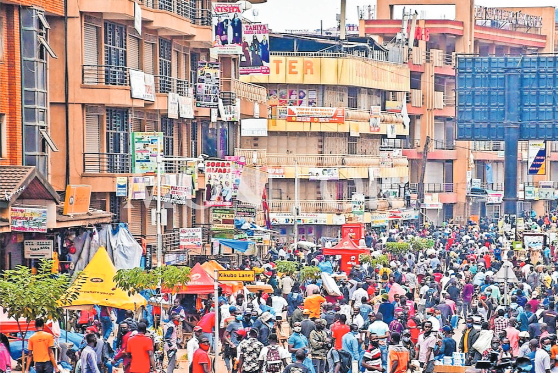Prime
Days after studying hard only to find a dim future won’t be pretty

Author, Benjamin Rukwengye. PHOTO/FILE.
What you need to know:
At the introduction of formal education, it was embraced because there was a direct correlation between school with opportunity
A friend once told us a story about two young men who he had taken on as his own. The first – let us call him Steve – somehow didn’t do so well in school and couldn’t join university. He was, obviously, dispirited. His guardian advised him to take a plumbing course and see where that leads. He didn’t really warm up to the idea but did it anyway.
The second – let us call him Mike – had passed his exams and joined university. At the time, the said friend was building a hotel so Steve had the chance to hang around and learn about plumbing from professionals – and firsthand. But he also got the opportunity to make some money and learn quite a great deal about other construction disciplines – from observation and participation.
And because he was the boss’ son, he was somewhat in-charge and acted as supervisor and go-to for simple site decisions. From the little money he was making, he set up a waterpoint next to his home and sold clean water to the locals. Soon, he bought a motorcycle and started taking plumbing and simple building jobs from other homes and construction sites. This allowed him to buy a small piece of land and start to construct a house for himself.
Meanwhile, construction of the hotel eventually ended and the boss needed a manager. Mike fit the bill. He was educated, schooled in the ways of courtesy and hospitality, trainable, and had the books required to get the go-ahead from the regulators. So, he got the job.
Steve wasn’t happy because he thought himself more deserving and experienced. I don’t quite remember how the rest of the details played out, but the moral of the story was to illustrate the hopelessness of not just our education but our economy as well. You see, it is clear that in this instance, Steve, with his not-enough-school came out the better of the two.
Why, you ask? Well, I don’t think the boss was going to pay Mike anymore than Steve was making from all of his freelancing. You and I know how poorly paid – if at all – nearly everyone around here is. And yet at some point, Mike was probably going to want to acquire land and build – like Steve had – thanks to societal pressures. Only that his little income wouldn’t have allowed that.
Soon, the boss would have realised that the hotel’s bottom lines can be improved with a more experienced professional in charge. Then he would have had to let Mike go back into unemployment or redeploy him elsewhere, into underemployment because there aren’t many opportunities floating around for everyone.
How long do you imagine it would have taken for Mike to hang on before he started processing papers to go to Dubai and bang kyeyo? And that is the conundrum for everyone. As things stand, it doesn’t matter whether you are a graduate or not, there is no opportunity. Basically, it is the economy and not necessarily the quality of our education that is vexing every young person. That’s not to say that the quality of our education doesn’t stink; it does!
At the introduction of formal education, it was embraced because there was a direct correlation between school with opportunity. You knew that when you went to school, you would find a job. Yeah! Of course, that’s far from what the point of education is, but in the third world, it is what it is. It did serve that purpose for a while and probably accounts for nearly 90 percent of the reasons for school enrollment.
But then, opportunities started to dwindle because the economics wasn’t working. So, study hard and get a job wasn’t quite true anymore. We then shifted to studying ‘marketable courses’ but that also didn’t work. We then moved to technical know-who but soon, even our connections had nowhere to fix us. that isn’t true, where there aren’t enough opportunities. We then moved to the Middle East to find more opportunity – regardless of our education levels.
The fear here is that good economics is the biggest contributor to school enrolment and retention. The promise of a good future gets a lot more people into school and keeps them there. All of this is easier when those who go through the system are prospering. What happens when their fortunes aren’t so different from those who drop out?
Mr Rukwengye is the founder, Boundless Minds. @Rukwengye




